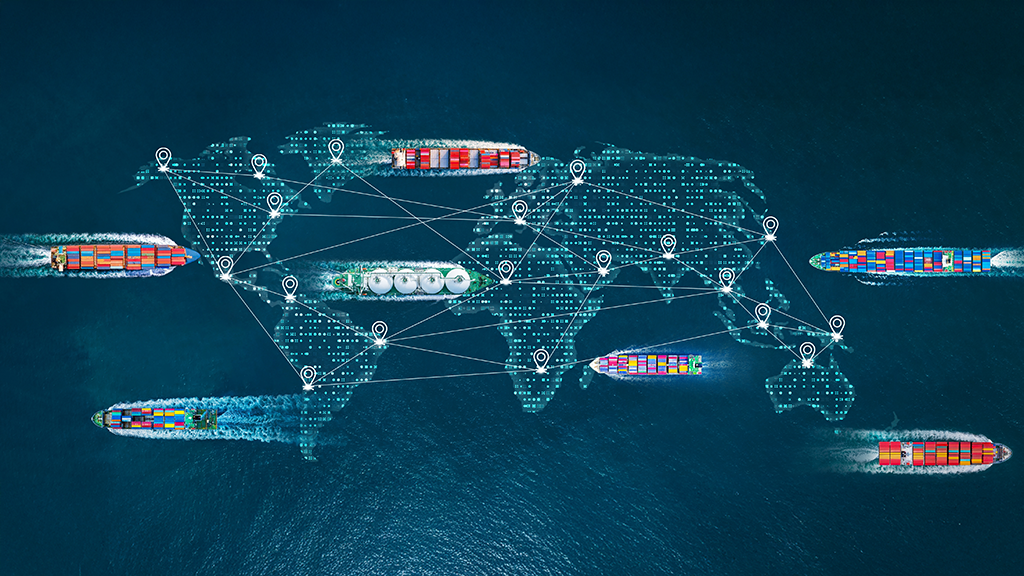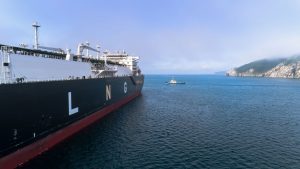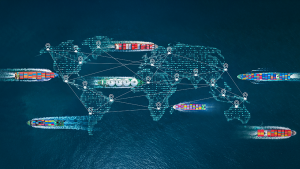TORONTO — The chief executive of pipeline operator TC Energy says he believes 17³Ô¹ÏÍø can be the No. 1 exporter of liquefied natural gas to Asia, but political leadership is crucial to making it happen.
“We have the supply, we have a transportation cost advantage and the demand is there for the taking,” François Poirier said in a speech recently to Canadian Club Toronto.Â
“Our leaders need to unite on this ambition — and show the world that 17³Ô¹ÏÍø is back in business.”
Liquefied natural gas, or LNG, is gas that has been chilled into a liquid state, enabling it to be transported overseas in specialized tankers. Gas produced in Western 17³Ô¹ÏÍø could sell for a much higher price in Asia than if it were to remain landlocked, and securing new buyers would reduce 17³Ô¹ÏÍø’s reliance on the United States.  Â
The initial phase of 17³Ô¹ÏÍø’s first LNG export terminal is set to start up mid-year in Kitimat, B.C.Â
LNG 17³Ô¹ÏÍø said earlier this month a ship carrying imported natural gas arrived at the facility for equipment testing.Â
TC Energy built the pipeline, Coastal GasLink, that ships natural gas across B.C. to Kitimat.Â
Poirier said for 17³Ô¹ÏÍø to be a global LNG leader, it will take political will as well as “big and bold” thinking.
“Fifteen years ago, 17³Ô¹ÏÍø was at the starting blocks with the U.S. in pursuing LNG exports. At one point, 17³Ô¹ÏÍø had 18 proposed LNG projects off the West Coast of 17³Ô¹ÏÍø,” he said.Â
“We had the opportunity then to be No. 1 — and now we’re playing catch up. 17³Ô¹ÏÍø today is commissioning its first LNG facility, while the U.S., well, they’ve become the largest exporter in the world.”
17³Ô¹ÏÍø currently sends virtually all of its natural gas exports to the United States. The trade relationship between the two countries has been rattled by U.S. President Donald Trump’s ever-evolving tariffs and musings about annexing 17³Ô¹ÏÍø.Â
Poirier is also calling for “hands-on political management” to ensure projects are built on time and on budget. He said whichever party wins the April 28 federal election should ask business leaders for a list of priority projects that government, industry and Indigenous leaders can work together to build with a sense of urgency.Â
“We know that political will and management capability can make a difference in this day and age and it’s been tested and proven by other governments around the world,” he said.Â
He added that policy certainty over project approval timelines is paramount if 17³Ô¹ÏÍø is to compete for investment — it can take a decade for projects to come to fruition in this country.Â
“If we allow this inertia to persist, we risk more than delays,” Poirier said.Â
“We risk ceding market share to our competitors, but more importantly we are entrusting our energy future to others and we are losing the opportunity for economic sovereignty that should be standard for a resource-rich country like 17³Ô¹ÏÍø.”
©2025 The Canadian Press






Recent Comments